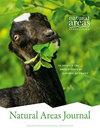Tuning Natural Processes
IF 0.8
4区 环境科学与生态学
Q4 ECOLOGY
引用次数: 0
Abstract
ABSTRACT In any natural area, the seasonally changing needs and interactions of each individual species from the microbiota to plants, invertebrates, and vertebrates are largely unknown. Completing individual management plans and actions for every species is patently unachievable. Accepting this complexity and uncertainty, we submit that returning the formative interactions of water, fire, and predation/herbivory are the keys to sustaining habitats for all species, even those for which we have absolutely no data. We also contend that management of the interactions of natural processes that support an entire flora and fauna can be resolved with guidance from “tuning” plant species. Tuning plant species are those most affected when natural processes are altered. Analogous to tuning a violin for the best sound or an engine to run smoothly, tuning plant species guide the adjustment of processes. Tuning plants can teach us how the interactions of natural processes work in ecological systems and give direction for management practices.调整自然过程
在任何自然区域,从微生物群到植物、无脊椎动物和脊椎动物,每个物种的季节性变化需求和相互作用在很大程度上是未知的。为每个物种完成单独的管理计划和行动显然是不可能实现的。接受这种复杂性和不确定性,我们认为恢复水、火和捕食/草食的形成相互作用是维持所有物种栖息地的关键,即使是那些我们完全没有数据的物种。我们还认为,支持整个动植物群的自然过程相互作用的管理可以通过“调谐”植物物种的指导来解决。当自然过程发生改变时,调谐植物是受影响最大的物种。类似于调整小提琴以获得最佳声音或使发动机平稳运行,调整植物物种指导过程的调整。调音植物可以告诉我们自然过程如何在生态系统中相互作用,并为管理实践提供方向。
本文章由计算机程序翻译,如有差异,请以英文原文为准。
求助全文
约1分钟内获得全文
求助全文
来源期刊

Natural Areas Journal
环境科学-林学
CiteScore
1.70
自引率
11.10%
发文量
50
审稿时长
>36 weeks
期刊介绍:
The Natural Areas Journal is the flagship publication of the Natural Areas Association is the leading voice in natural areas management and preservation.
The Journal features peer-reviewed original research articles on topics such as:
-Applied conservation biology-
Ecological restoration-
Natural areas management-
Ecological assessment and monitoring-
Invasive and exotic species management-
Habitat protection-
Fire ecology.
It also includes writing on conservation issues, forums, topic reviews, editorials, state and federal natural area activities and book reviews. In addition, we publish special issues on various topics.
 求助内容:
求助内容: 应助结果提醒方式:
应助结果提醒方式:


